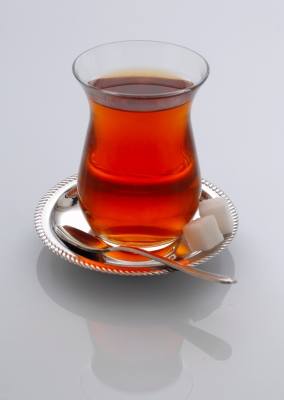
These traces are within specified limits, but low levels of exposure to a neurotoxin like lead can be hazardous; very large single or long-term intake of copper may cause liver disease.
The Consumer Education and Research Society (CERS), based in Ahmedabad, has come out with a product-testing laboratory test on 12 brands of organic tea and three conventional tea brands. The findings are shocking, to say the least.
The CERS comparative product laboratory test on 12 organic tea brands has discovered the presence of heavy metals—like lead and copper-in all of them. However, these metals were present in these organic brands within the specified limits. Three conventional tea brands—which do not claim to be ‘organic’—were also tested. All these three conventional tea brands contained heavy metals such as lead and copper—along with traces of pesticides.
The results revealed that the highest amount of lead was found in ‘Organic Tea Tulsi Green’—1.4 parts per million (ppm—and the lowest was in ‘Indien Gold—Broken’ (0.1ppm). Amongst the conventional brands, ‘Wagh Bakri Strong CTC’ had the highest level of 1.3ppm and the lowest level was found in ‘Tata Tea Premium’ and ‘Brooke Bond Red Label’—both with 0.9ppm.
CERS found that the highest amount of copper was found in ‘Assam Strong Leaves’ (31.2ppm) and the lowest in ‘Organic India Tulsi Ginger’ (12.3ppm). Presence of copper was found to be in the range of 15ppm to 16ppm in all three conventional tea brands.
Besides heavy metals, these tea brands were also tested for the presence of pesticides like Lindane, Aldrin, Dieldrin, DDT, Endosulfan, Dicofol and Ethion.
According to the test result, all the organic tea brands were found to be free from containing any residues of the above seven pesticides.
Interestingly, the three conventional tea brands—Tata Tea Premium, Brooke Bond Red Label and Wagh Bakri Strong CTC—contained pesticide residues—DDT (ranging from 0.04ppm to 0.1ppm); Dicofol (ranging from 0.1ppm to 0.3ppm) and Ethion (ranging from 0.04ppm to 0.1ppm), which are well within the specified limits.
CERS says that since all the brands it tested had detectable levels of lead and copper in them, it decided not to select a ‘best buy.’
Out of the 12 organic tea brands, seven were procured from Germany—though produced in India. The remaining brands were purchased from the local market.
Since there are no analytical standards for organic tea in India, CERS followed the standards applicable to conventional tea as standards for organic tea. Organic tea samples were tested against the values set by the Bureau of Indian Standards (BIS).
The press note by CERS quoted Wagh Bakri’s manufacturers as saying, “Lead and copper cannot be removed completely as they are present in the soil and water and are absorbed by the plant through preferential absorption. There is no difference in taste between organic and conventional tea. Consumers who are into buying other organic food products may invest in organic tea, for others, conventional tea is good enough.”
Tata Tea was quoted in a press release as saying, “Environmental contamination through air and soil are responsible for lead contamination in tea plants, on which we have no control.”
On the presence of pesticide in its tea sample, Tata Tea said that “though the Tea Board of India does not approve the presence of DDT, Dicofol that is structurally similar to DDT, is an approved pesticide. Dicofol could have DDT contamination. The use of Dicofol in conventional tea plantations and the long residue life of DDT could cause its presence in tea. Tata Tea raised an important point that although the PFA (Prevention of Food Adulteration) Act does not mention the limits for DDT in tea (implies it should be nil), then how does it allow up to 3.5ppm of DDT in vegetables?”
CERS recommends that the BIS should stipulate analytical standards and testing requirements for organic foods and tea and to make organic certification mandatory. The BIS should monitor the quality of pesticide formulations used in tea plantations for the presence of chemical contaminants. CERS also wants the Food Safety and Standards Authority of India (FSSAI) to revise and bring down the maximum limits for metal contaminants in tea, especially for lead, and make the standards stricter.

